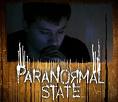A small island nation in the Persian Gulf, the Kingdom of Bahrain is connected to the mainland by the narrow 15.5 mile long King Fahd Causeway. Apparently members of its government are connected to the 20th century, or reality not at all.
From an article in Live Science
Bahrain Urged to Crack Down on Black Magic
By Benjamin Radford, LiveScience Bad Science Columnist | December 13, 2013An official in Bahrain has demanded that his government take steps to warn its citizens about the dangers of witchcraft and crack down on its practice.
Bahrain is hardly alone in its embrace of, or perhaps belief in, witches and black magic, as places such as Saudi Arabia, Africa and Papua New Guinea have long tossed accusations of dark arts’ practices at purported sorcerers. In fact, a Gallup poll in 2010 found that half of respondents in sub-Saharan Africa said they personally believe in witchcraft. That number varied across Africa, ranging from 15 percent in Uganda to 95 percent in Ivory Coast. Such beliefs in witchcraft have led to horrific murders and mutilations, as well as dangerous medical practices (as carried out by so-called witch doctors).
The newest claim came from parliament member Mohammed Buqais, who blasted his government for its failure to raise awareness about the threat of black magic to Bahraini citizens, and especially its children. “I studied in school for 12 years and worked as a teacher for 15 years, but never came across any subject that addresses sorcery or witchcraft,” said Buqais, as quoted by The Gulf Daily News. “This means the government is failing to raise awareness.”
These accusations may seem to some like antiquated superstitions, but belief in black magic and witchcraft is widespread in many parts of the world. Accusations of witchcraft are not unheard of, and — just as happened in the Salem Witch Trials in the 1600s — are often used as a pretext for personal and political attacks.
Lest anyone think this is just some sort of mummery and fundamentalist based governments do not take these accusations seriously…
Human Rights Watch has appealed to Saudi Arabia to halt the execution of a woman convicted of witchcraft.
In a letter to King Abdullah, the rights group described the trial and conviction of Fawza Falih as a miscarriage of justice. The illiterate woman was detained by religious police in 2005 and allegedly beaten and forced to fingerprint a confession that she could not read. Among her accusers was a man who alleged she made him impotent.
Human Rights Watch said that Ms Falih had exhausted all her chances of appealing against her death sentence and she could only now be saved if King Abdullah intervened. The US-based group is asking the Saudi ruler to void Ms Falih’s conviction and to bring charges against the religious police who detained her and are alleged to have mistreated her. Its letter to King Abdullah says the woman was tried for the undefined crime of witchcraft and that her conviction was on the basis of the written statements of witnesses who said that she had bewitched them.
Human Rights Watch says the trial failed to meet the safeguards in the Saudi justice system. The confession which the defendant was forced to fingerprint was not even read out to her, the group says. Also Ms Falih and her representatives were not allowed to attend most of the hearings. When an appeal court decided she should not be executed, the law courts imposed the death sentence again, arguing that it would be in the public interest.
BBC News, February 14, 2008
Wa `alaykum as-salamu wa rahmatullahi wa barakatuh. In the Name of Allah, Most Gracious, Most Merciful.
This is far from the only story. There are many more at WikiIslam.net
What is considered “black magic” under Islamic, for lack of a better word, law?
– Summon jinns to attack or even kill other people, or take over their bodies.
– Summon jinns to break marriages, prevent or hinder intercourse. This is the most common type of black magic and is what was mentioned in Surah al-Baqarah.
– Blow on knots with incantations.
– Those whom the jinns whisper to, while pretending to see future; any type of fortune-tellers.
– Looking at the stars to predict the future.
And the punishment:
According to Ibn Kathir, this Hadith is transmitted by Bukhari in his Sahih (Fathu’l-Bari, 6/257). Ibn Kathir stated: “The death penalty has another antecedent in the story of Hafsa (radiyallahu anha), Umm al-Mu’minin. One of her female servants performed Sihr to her, so she ordered that her servant be killed, and the killing was carried out. According to Imam Ahmad, three companions of Rasulullah (sallallaahu alayhi wa sallam) confirmed that the punishment for a Saahir is the death penalty.” (Tafsir Ibn Kathir, 1/144)
Let this serve as a warning about potential outcomes if self-righteous fundamentalist religious beliefs are permitted to set education standards.
Follow us on FaceBook for updates and more.
4 comments




